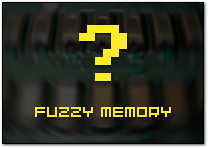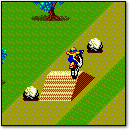 Every once and a while, I receive emails from people looking for a certain game, electronic toy, or computer from their distant past. I then pass it on to intrepid VC&G readers to crack the case.
Every once and a while, I receive emails from people looking for a certain game, electronic toy, or computer from their distant past. I then pass it on to intrepid VC&G readers to crack the case.
The Clues
Marko writes:
I need help identifying adventure game for Amstrad CPC. I remember playing the game in the late 80’s (possibly ’88 – ’89, but the game itself could be older). I didn’t play it much though, possibly due to difficulty, but I do remember that I liked “mystery” feeling about the game.
Now for what I remember (and hopefully all this is correct). It is a text based (possibly had list of options / actions to select) and the story revolves around a group of people (possibly family?) being shipwrecked / having an accident at sea due to a storm. The game begins with telling the story about the incident. Now this is the part that I could be wrong about, but I think the player is tasked with either finding the people that were on the ship or finding about their history. Again, it is possible that that group of people is a family and possibly player’s ancestors.
In terms of graphics, game had black background, and I remember a lot of red colour / shades of red being used for drawings. At the beginning of the game, when the story is being told, I remember a picture of the ship which was drawn in red pen / outline.
This is all I can remember, I know its not much, and hopefully most of the facts above are correct – my memory of this game is very very hazy.
If your readers could possibly help with identifying the game in question, I would be really grateful – would love to try it again in an emulator.
Kind regards,
Marko
The Search Begins
It’s up to you to find the object of Marko’s fuzzy memory. Post any thoughts or suggestions in the comments section below. Marko will be monitoring the comments, so if you need to clarify something with him, ask away. Good luck!
—
Have a memory of a computer, video game, computer software, or electronic toy you need help identifying? Send me an email describing your memories in detail. Hopefully, the collective genius of the VC&G readership can help solve your mystery.









 Every once and a while, I receive emails from people looking for a certain game, electronic toy, or computer from their distant past. I then pass it on to intrepid VC&G readers to crack the case.
Every once and a while, I receive emails from people looking for a certain game, electronic toy, or computer from their distant past. I then pass it on to intrepid VC&G readers to crack the case.




